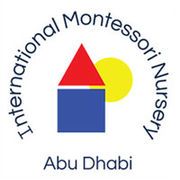CURRICULUM
Each classroom is a specifically prepared environment consisting of activities and experiences with an integrated focus to the core curriculum of Practical Life, Sensorial, Communication, Language and Literacy, Numeracy and Knowledge and Understanding of the World.
Practical Life
Experiences allow the child to achieve a form of self-sufficiency through care of oneself, others and the environment. It is through Practical life that the child learns many of our daily skills. With the establishment of the work cycle the child experiences independence and success. Pouring, spooning, whisking, beating, washing, polishing, sweeping and dressing frames are activities that reflect daily life and assist in the development of a child's sense of order, co-ordination, concentration and independence.
The Sensorial materials allow the child to focus and concentrate on the five senses, which enables the child to classify and understand his/her world:
to enable the child to understand his/her sensorial impressions - visual, aural, tactile, olfactory, gustatory (sight, sound, touch, smell and taste),
to develop the child's ability to perceive, discriminate and remember sensorial information,
to foster the beginning of the conscious knowledge.
The sensorial materials allow the child to distinguish, categorize and relate to new information to what he/she already knows.Through the Language Curriculum the child develops an awareness of the sounds of speech and the corresponding written letters.A child is introduced to reading and writing and the communication of ideas:
to develop the child's receptive and expressive language abilities via auditory,visual and cognitive experiences and activities.
to enable the child to develop gross and fine motor skills necessary towards the mechanics of writing,
to enable the child to develop the decoding and encoding skills necessary for the written communication and thoughts.
The Montessori Math Curriculum allows the child to learn from concrete to abstract through manipulation, experimentation and exploration. The materials sequentially increase in complexity:
to enable the child to discover the concepts and relationships inherent in the numbering system via concrete materials,
to enable the child to understand the working functions of numbers rather than merely memorizing the operation of arithmetic
The Montessori Knowledge and Understanding of the World will enable the child to experience geography, history, art history, botany, zoology, land forms, maps, nomenclature cards and cultural folders.The Montessori Knowledge and Understanding of the World will enable the child to experience geography, history, art history, botany, zoology, land forms, maps, nomenclature cards and cultural folders.Geography: study of the physical worldBiology: study of plants and animalsHistory: study of the child's individual time lines, celebrations and the development of the awareness of other cultures.Within this setting each individual child has the opportunity to work on activities available in any of the curriculum areas.
Arts / Creativity
The arts and creative programme is integrated into the daily planning of the setting. The children are given ample opportunities to develop their creativity through a variety of mediums, materials and tools. The children are also encouraged to explore both verbal and non-expressions through singing, rhymes, chants and the use of musical instruments. Role play is an integral part of creativity as this allows the child to 'de-centre'.'imagination does not become great until man, given courage and strength, uses it to create'
Maria Montesorri
Physical / Health / Outdoors
The aim of offering physical and outdoor activities is to offer the children the opportunity to discover the capabilities of their bodies and the variety of ways in which they are able to use their bodies to solve problems, address physical challenges, function as a group, manipulate equipment and apparatus and express themselves in a arrange of situations.



